<--- Back to Details
| First Page | Document Content | |
|---|---|---|
 Date: 2014-03-11 12:01:12Auxiliary verb Copyright Vocabulary English modal verb Pasieka English as a foreign or second language Linguistics Data Information |
Add to Reading List |
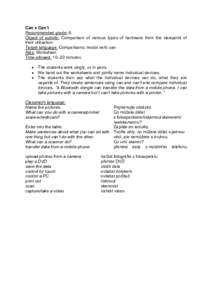 | Can x Can’t Recommended grade: 6. Object of activity: Comparison of various types of hardware from the viewpoint of their utilisation Target language: Comparisons; modal verb can Aids: WorksheetDocID: 1tHSV - View Document |
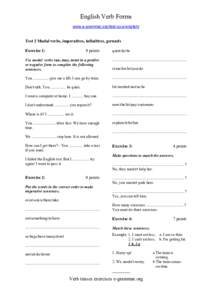 | English Verb Forms www.e-grammar.org/test-your-english/ Test 2 Modal verbs, imperatives, infinitives, gerunds Exercise 1:DocID: 1s7Nt - View Document |
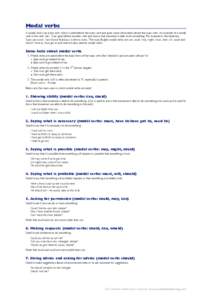 | Modal verbs A modal verb is an extra verb which is used before the main verb and gives more information about the main verb. An example of a modal verb is the verb ‘can’. ‘Can’ goes before another verb and showsDocID: 1rret - View Document |
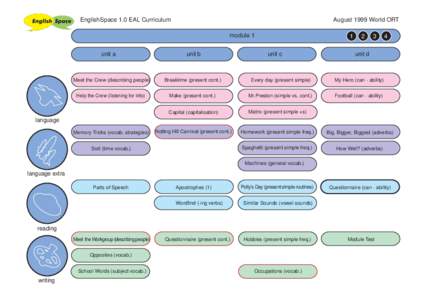 | EnglishSpace 1.0 EAL Curriculum August 1999 World ORT module 1 unit aDocID: 1rbzW - View Document |
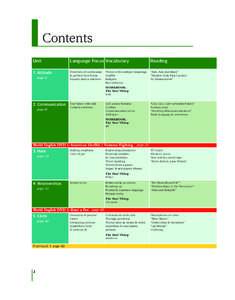 | 00 intro Ame Frame 5 std.qxd:10 PMDocID: 1qIEp - View Document |
 Learning English with CBC Edmonton Weekly Newscast March 7th, 2014 Lessons
prepared
by
Barbara
Edmondson,
Kim
Chaba-‐Armstrong
&
Justine
Light
Learning English with CBC Edmonton Weekly Newscast March 7th, 2014 Lessons
prepared
by
Barbara
Edmondson,
Kim
Chaba-‐Armstrong
&
Justine
Light